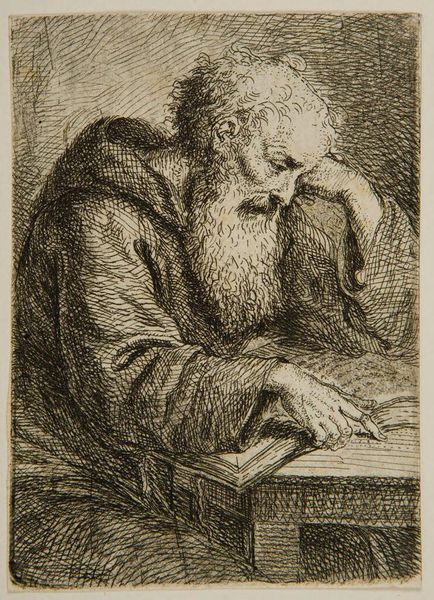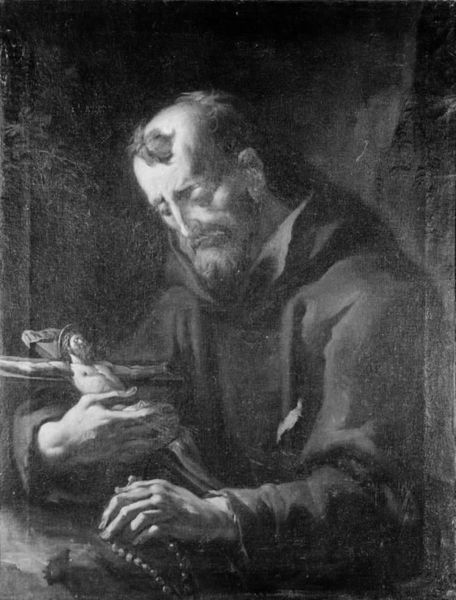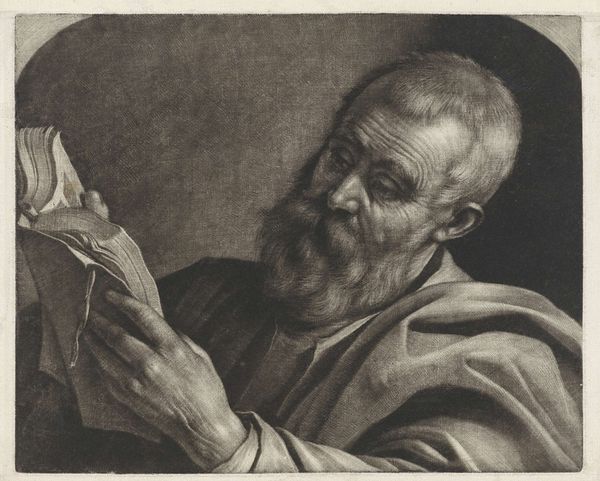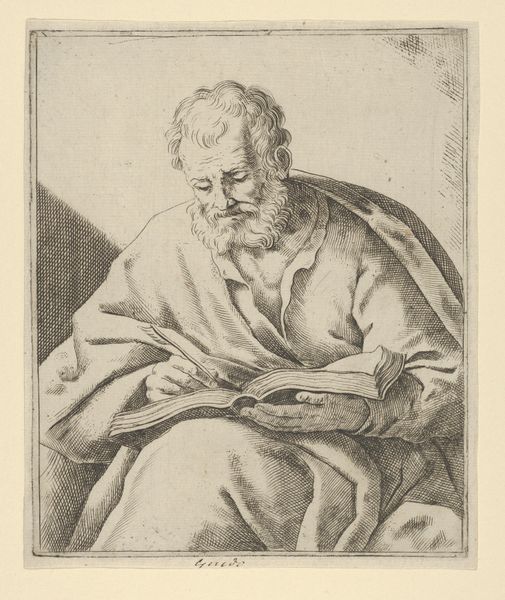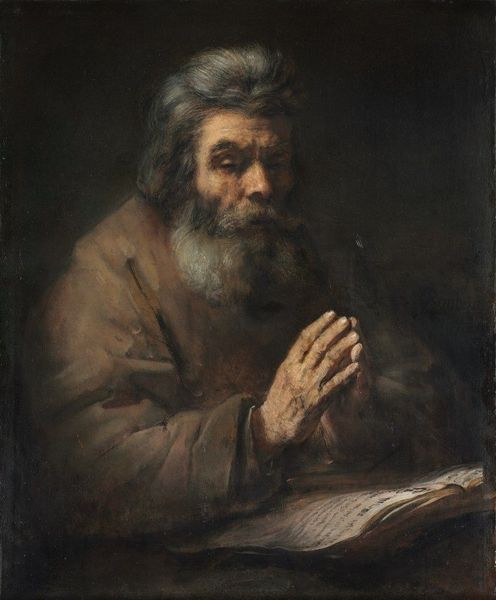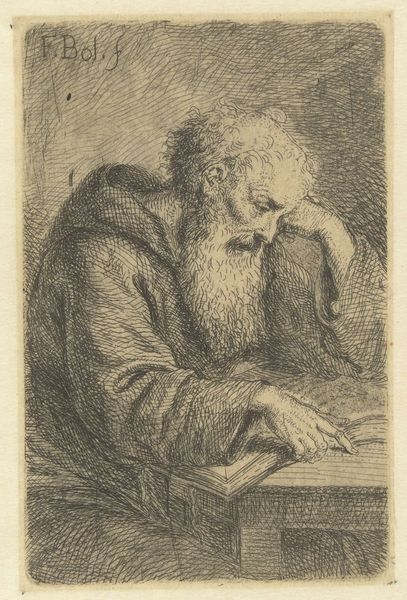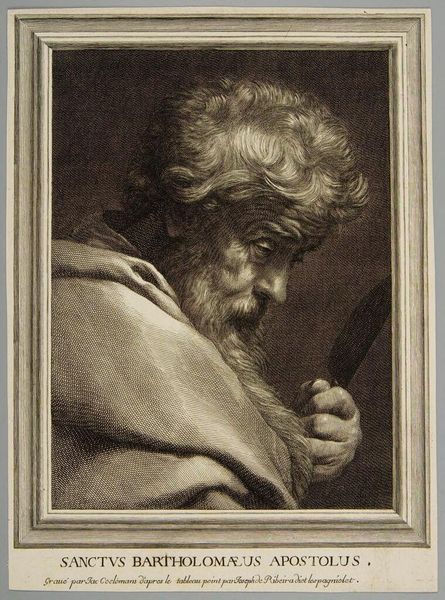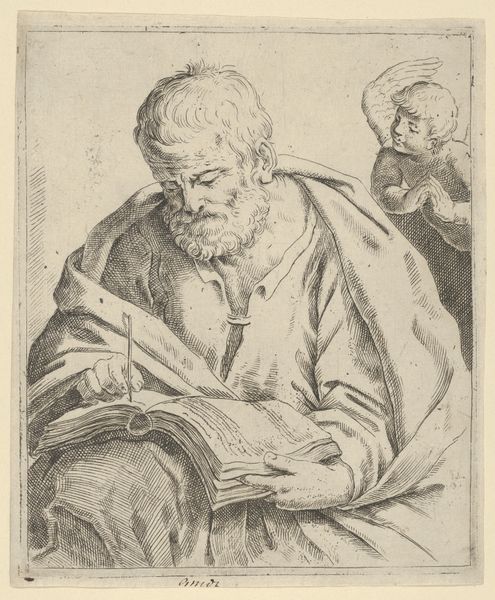
painting
#
portrait
#
baroque
#
painting
#
christianity
#
italian-renaissance
Copyright: Public domain
Guido Reni created this contemplative image of "Head of Saint Joseph" in the 17th century. The painting invites us to contemplate the relationship between form and spirituality. The artist employs a subdued palette, with earth tones dominating the composition, that evokes a sense of humility and introspection. The light delicately models Saint Joseph’s face, drawing our attention to his serene expression. The texture, achieved through subtle brushwork, gives a tactile quality to the image. The diagonal orientation of Saint Joseph’s head, bent over a book, introduces a dynamic element to the otherwise still composition. The structure of the painting, with its emphasis on the interplay of light and shadow, can be understood through the lens of semiotics. The visual components, such as the book, function as signs that signify knowledge and devotion. Reni challenges fixed meanings by presenting Saint Joseph not as a symbol of power, but as a figure of quiet contemplation. Ultimately, "Head of Saint Joseph" presents a powerful statement about the nature of faith and the human condition.
Comments
No comments
Be the first to comment and join the conversation on the ultimate creative platform.

